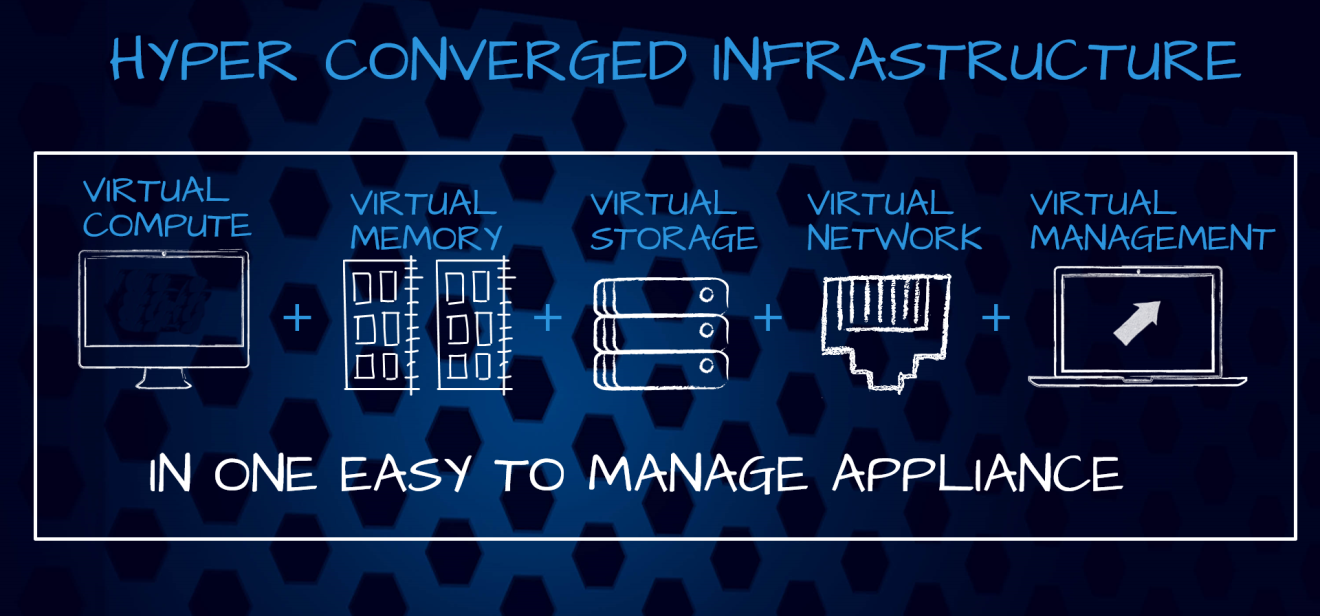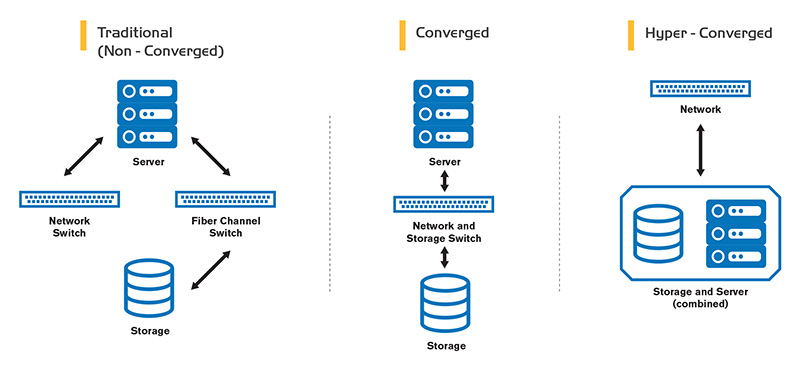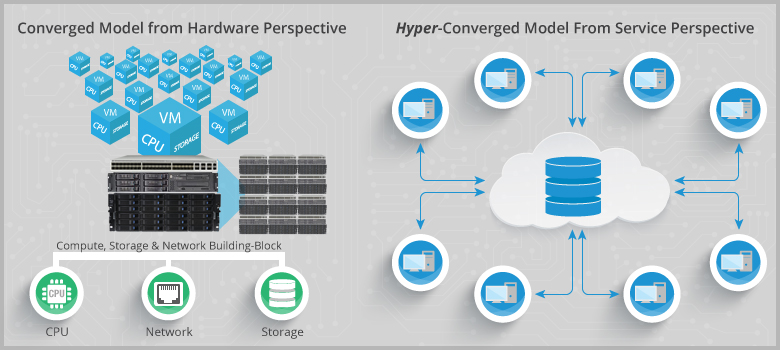Hyper converged infrastructure has been talked a lot in recent years and its adoption is skyrocketing in data centers. However, many people are still confused by this term. Converged Infrastructure vs hyper converged infrastructure, what’s the difference between them? This post will introduce it in details.
Hyper converged infrastructure is often named HCI. It is introduced in 2012 to describe a fully software-defined IT infrastructure that virtualizes all the elements of conventional hardware-defined systems. In other words, the networking and storage tasks in the hyper converged infrastructure are implemented virtually through software rather than physically in hardware. Generally, hyper converged infrastructure is at least composed of virtualized computing (a Hypervisor), a virtualized SAN (software-defined storage) and virtualized networking (Software-defined networking). It can be utilized as a way to pool together resources so as to maximize the interoperability of on-premises infrastructure.

Hyper converged infrastructure and converged infrastructure are two alternative solutions to replace the traditional IT infrastructure. This part will tell the differences between them to help you choose one over another for your network deployment.

Converged infrastructure defines compute, storage, networking and server virtualization—which are the four core components in a data center—as one dense building block. Hyperconverged infrastructure is born from converged infrastructure and the idea of the software-defined data center (SDDC). Besides the data center’s four core components, hyperconverged infrastructure integrates more components such as backup software, snapshot capabilities, data deduplication, inline compression, WAN optimization and so on.
Hyper converged infrastructure is a software defined approach. It means the infrastructure operations are logically separated from the physical hardware, and all components in a hyper converged infrastructure have to stay together to function correctly. While converged infrastructure is a hardware-focused, building-block approach. Each component in a converged infrastructure is discrete and can be used for its intended purpose. For example, the server can be separated and used as a server, just as the storage can be separated and used as functional storage.

Converged infrastructure allows IT to use a single vendor for end-to-end support for all core components instead of the traditional approach where IT might buy storage from one vendor, network from another and compute from another. It also offers a smaller footprint and less cabling, which can reduce the cost of installation and maintenance.
Hyper converged infrastructure allows IT to build, scale and protect your IT infrastructure more affordably and effectively. For example, a 10GbE Access Layer Switch (8*10/100/1000Base-T+8*1GE SFP Combo+12*10GE SFP+) specially for hyper converged infrastructure only costs US$ 1,699. And the software-defined intelligence reduces operational management, providing automated provisioning of compute and storage capacity for dynamic workloads.
It is reported that hyper converged infrastructure will represent over 35 percent of total integrated system market revenue by 2019. This makes it one of the fastest-growing and most valuable technology segments in the industry today. The upfront costs of hyper converged infrastructure may be a little high now, but in the long term it can pay off.
Related Article: FS S5800-8TF12S Switch: Key Choice for Hyper-Converged Infrastructure Solution
